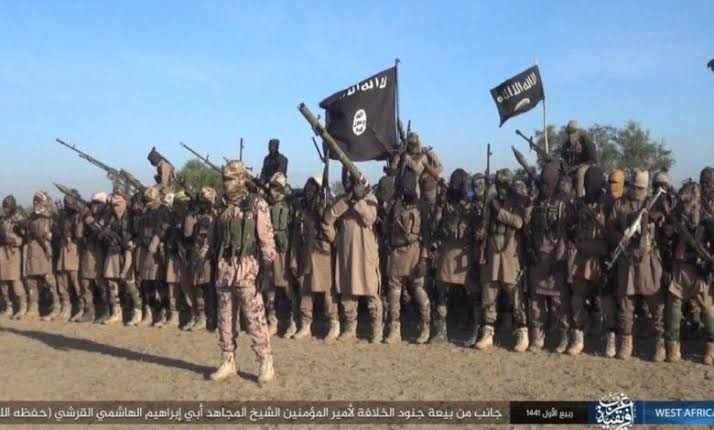Islamic State Claims Web of Attacks Across Africa
The terrorist group said it attacked military and civilian positions in Nigeria, Niger Republic, Mozambique, the Democratic Republic of Congo (DRC), and Mali, revealing the group's sustained influence in Africa despite global efforts to curtail its activities.

In the newly released Al-Naba weekly newsletter, the Islamic State (IS) has claimed a series of attacks across several African countries in one week between Dec. 6 and 12, 2024.
The jihadi group said it attacked military and civilian positions in a web of attacks across Nigeria, Niger Republic, Mozambique, the Democratic Republic of Congo (DRC), and Mali, revealing the group’s sustained influence in Africa despite global efforts to curtail its activities.
IS claimed it had operated in the African continent under its different affiliates, including Islamic State West Africa Province (ISWAP), Islamic State Central Africa Province (ISCAP), and Islamic State Sahel Province (IS-Sahel).
In Nigeria, the group claimed targeting both military forces and civilian populations in Borno and Adamawa States, where it said it had killed and wounded Nigerian soldiers, destroyed military vehicles, and seized weapons and supplies.
One attack in Gamboru-Ngala, according to the newsletter, led to the killing of a soldier and the seizure of firearms, while another in Dalwa resulted in casualties and the destruction of military equipment.
In Yobe State, the group said it used improvised explosive devices (IEDs) through ISWAP to target foot patrols, causing multiple injuries. The group emphasised the destruction of military assets, including armoured vehicles and motorcycles, as part of its broader strategy to weaken Nigerian forces.
Over the past week, ISWAP claimed responsibility for at least a dozen attacks, boasting a combined toll of 12 military fatalities and numerous injuries across its operational areas, majorly in northeastern Nigeria and the Lake Chad region.
Meanwhile, in Mozambique, the Islamic State Central Africa Province (ISCAP) has intensified its campaign of terror in the troubled Cabo Delgado region. The group said it attacked villages, police stations, and local militias, leaving destruction in its wake.
In the district of Muidumbe, ISCAP terrorists set fire to several homes in civilian communities and targeted police forces, killing and injuring officers.
In one notable incident in the village of Moagioud, ISCAP fighters raided a police station, setting it ablaze after forcing the officers to flee.
ISCAP’s terror activities in Mozambique have left citizens in humanitarian crises and displacement, with thousands fleeing violence in the north. While regional and international forces have launched military interventions to stabilise the region, ISCAP’s ability to strike with impunity remains a significant challenge in the country.
ISCAP’s terror campaign has also led to attacks in Ituri and North Kivu provinces. The group claimed to have killed seven civilians and captured ten others in the village of Bandolo in Lubero over the past week.
The group has also claimed ambushing a Congolese military patrol near the same village, resulting in casualties and injuries.
In another gruesome act, ISCAP terrorists claimed to have executed six civilian captives, emphasising their intent to instil fear among communities. These attacks were accompanied by assaults on Congolese army positions, with the group claiming to have seized weapons and ammunition.
In the Sahel, the Islamic State in the Sahel (IS-Sahel) has continued to target military and paramilitary forces. In western Niger’s Tillabéri region, IS claimed responsibility for killing 13 members of a pro-government militia and seizing military supplies.
This attack followed reports of the militia’s involvement in violence against local communities, a dynamic IS frequently manipulates to justify its actions and gain support among marginalised populations.
Meanwhile, in Mali, the group launched an assault on a military checkpoint in Gao, claiming killing a Malian soldier and injuring others.
The Sahel has become a critical battleground for IS affiliates as they vie for dominance against rival groups like al-Qaeda’s Jama’at Nasr al-Islam wal Muslimin (JNIM). These groups exploit grievances over governance, resource distribution, and ethnic tensions, ensuring that counterinsurgency efforts remain fragmented.
In a newly released newsletter, the Islamic State (IS) claimed a series of attacks across several African countries within one week, showcasing their sustained influence in Africa.
The attacks spanned Nigeria, Niger, Mozambique, the Democratic Republic of Congo, and Mali, with the group operating under various affiliates such as ISWAP, ISCAP, and IS-Sahel. In Nigeria, IS targeted military and civilian positions, launching attacks in Borno, Adamawa, and Yobe States, resulting in casualties and the destruction of military assets.
Meanwhile, ISCAP intensified its terror campaign in Mozambique, attacking villages and police stations, causing large-scale displacement and humanitarian crises. In the Democratic Republic of Congo, the group attacked Ituri and North Kivu provinces, leading to civilian casualties and military confrontations.
In the Sahel, IS-Sahel targeted military and paramilitary forces in Niger and Mali, further destabilizing the region amidst ongoing rivalries with groups like al-Qaeda's JNIM. These actions highlight the complex challenges in combating IS's operations across Africa.
Support Our Journalism
There are millions of ordinary people affected by conflict in Africa whose stories are missing in the mainstream media. HumAngle is determined to tell those challenging and under-reported stories, hoping that the people impacted by these conflicts will find the safety and security they deserve.
To ensure that we continue to provide public service coverage, we have a small favour to ask you. We want you to be part of our journalistic endeavour by contributing a token to us.
Your donation will further promote a robust, free, and independent media.
Donate HereStay Closer To The Stories That Matter




